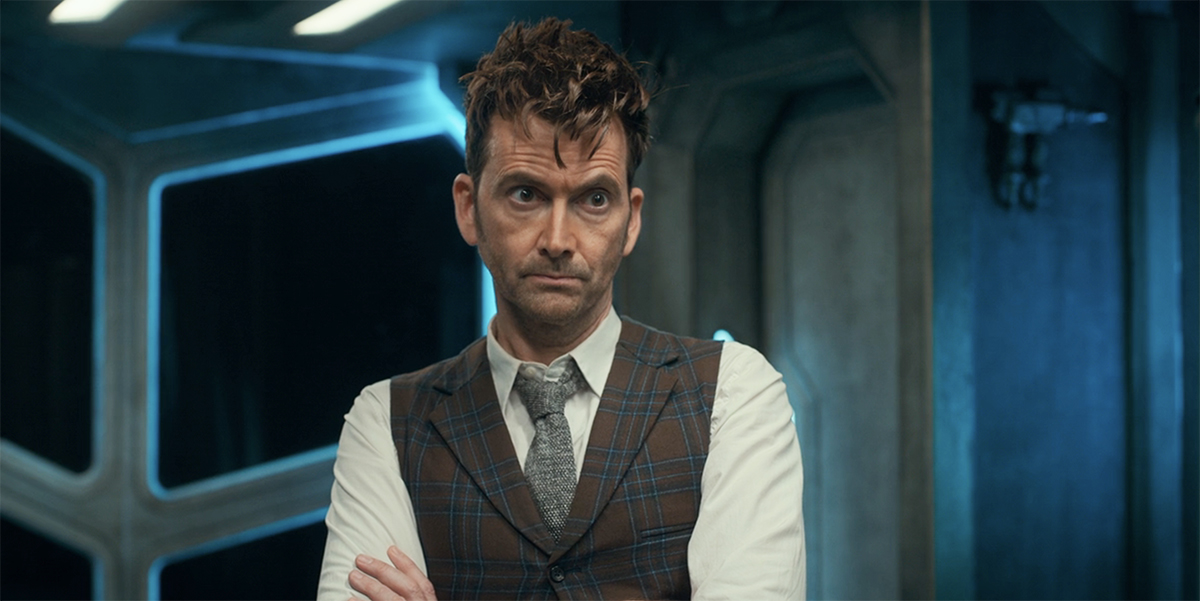So Why Exactly Did David Tennant’s Face Come Back as the Doctor on ‘Doctor Who’?

The question remained throughout most of the three 60th anniversary specials for Doctor Who: Why did David Tennant’s face return to Doctor Who? Not why the actor himself would to the series or why they chose to bring back this Doctor (both obvious choices). But rather, why this face?
Exploring why the Tenth Doctor got to see a new era as the Doctor once more brings up a lot of feelings—some personal and some more rooted in the story itself that showrunner Russell T. Davies was telling with the specials. But it is very important to the arc of the Doctor that we returned to Tennant as a Doctor, and that his final moments in “The Giggle” happened in the way that they did, because of all of the Doctors to get their very own TARDIS and their very own bi-generation, his is the one that does make a lot of sense.
For Davies, it makes sense that it’s Tennant. For fans, that answer is less simple because we get into a lot of back and forth on who deserves this kind of ending. What the show gives us as an explantation is that the Doctor needed to rest, and if you separate the aspects of the Doctor that do need the rest from the parts of the Doctor that need to move on and save the world, you can have this Doctor live a much more relaxed existence. Hence the bi-generation and the separation of church (unrelaxed David Tennant) and state (fresh-faced Ncuti Gatwa).
So, why David Tennant’s face and not, say, any of the Doctors before or after him? Frankly, the answer is kind of simple: unfinished business.
It seems to me that it had something to do with unfinished business
While many of the Doctors had to say goodbye to companions, with Eleven (Matt Smith) being separated from Amy Pond (Karen Gillan) and Rory Williams (Arthur Darvill), it didn’t necessarily feel as unfinished as the final moments of Donna Noble (Catherine Tate) and her Doctor. The Doctor and Donna serve as a painful reminder of the relationships that Tennant’s Doctor had. That dynamic meant a lot to fans, and it hurt to see it left so tattered and broken in the end.
Pair that with a regeneration that was mangled by a final line that frankly ruined Tennant’s run for many (myself included), it left what was one of the best runs as the Doctor with a feeling of losing something that so many of us loved. It is why I clung to and loved Matt Smith’s era so deeply and why that regeneration is still my favorite. Giving Tennant this new chance, a return to his face and a second chance at a life as the Doctor, does, in a way, feel like a cop out, but it also feels right for who this Doctor was.
So the “why this face?” of it all boils down to one simple thing: why not?
(featured image: BBC)
Have a tip we should know? [email protected]
